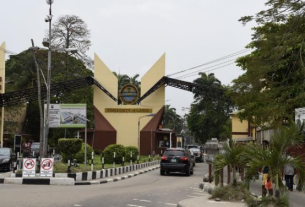In a note to correspondents issued on Friday, the UN said there were “increasingly alarming reports of a dramatic escalation of tensions”.
“The Rapid Support Forces (RSF) are reportedly encircling El Fasher, suggesting a coordinated move to attack the city may be imminent. Simultaneously, the Sudanese Armed Forces (SAF) appear to be positioning themselves,” the statement added.
An attack on the city would have devastating consequences for civilians, the statement from the UN Spokesperson’s Office continued.
“This escalation of tensions is in an area already on the brink of famine. The Secretary-General reiterates his call on all parties to refrain from fighting in the El Fasher area.”
Overall, around 25 million people, or half Sudan’s population, require humanitarian aid, with over eight million forced to flee their homes. More than 14,000 people have been killed and tens of thousands wounded.
Around 1.8 million have fled across the country’s borders trying the escape the brutal fighting.
Dozens already killed
In a further alert on Friday over Darfur, UN rights chief Volker Türk cited reports that the rival militaries have launched indiscriminate attacks using “mortar shells and rockets fired from fighter jets in residential districts”.
Since the RSF began their push into the state capital, El Fasher, at least 43 people have been reportedly killed, including women and children.
“Civilians are trapped in the city, the only one in Darfur still in the hands of the Sudanese Armed Forces,” and they are afraid of being killed if they attempt to flee, the High Commissioner said.
Mr. Türk noted that the dire situation had been made worse by a severe shortage of essential supplies as delivery trucks “are unable to freely transit through Rapid Support Forces-controlled territory”.
He said the RSF had burned down villages in western El Fasher, including Durma, Umoshosh, Sarafaya and Ozbani, raising the possibility of “further ethnically motivated violence in Darfur, including mass killings”.
Last year, fighting and attacks between the ethnic Arab Rizeigat tribe and the ethnic African Masalit people in West Darfur left hundreds of civilians dead or injured and thousands displaced, the High Commissioner noted, as he called for an end to the more than year-long conflict.
‘Wholly man-made crisis’
The UN’s head of Political and Peacebuilding Affairs, Rosemary DiCarlo, told the Security Council last week that the situation across Sudan is “a crisis of epic proportions; it is wholly man-made”.
The director of operations at the UN humanitarian affairs office, OCHA, Edem Wosornu, warned the same meeting that the siege by the RSF of El Fasher posed an extreme and immediate danger to civilians there and in other parts of Darfur, where more than nine million are in dire need of assistance.



